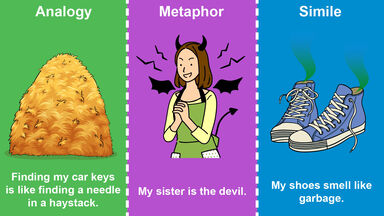Make Definition
- form
- constitute
- Also used with up: compose
- advance
- proceed
- go
- strike out
- set out
- head
- bear
- execute
- carry through
- do
- cover
- engage in
- To confess fully.
- To distort the features of the face; grimace.
- To achieve success in:
have made a go of the business.
- To carry off; steal.
- To use up or consume.
- To pretend.
Idioms, Phrasal Verbs Related to Make
- make a clean breast of
- make a face
- make a go of
- make away with
- make believe
- make bold
- make book
- make do
- make ends meet
- make eyes
- make fun of
- make good
- make hay
- make heads or tails of
- make history
- make it
- make light of
- make light work of
- make love
- make much of
- make nice
- make no bones about
- make off with
- make (one's) day
- make (one's) peace with
- make (one's) way
- make sail
- make sense
- make something of
- make the grade
- make the most of
- make the scene
- make time
- make tracks
- make up (one's) mind
- make waves
- make way
- on the make
- make a fool of
- make after
- make a meal on
- make as if
- make away with
- make believe
- make someone's day
- make do
- make for
- make good
- make it
- make like
- make something of
- make off
- make off with
- make or break
- make out
- make over
- make up
- make up one's mind
- make up to
- make with
- on the make
- put the make on
Origin of Make
-
From Middle English maken, from Old English macian (“to make, build, work"), from Proto-Germanic *makōnÄ… (“to make, build, work"), from Proto-Indo-European *mag- (“to knead, mix, make"). Cognate with Scots mak (“to make"), Saterland Frisian moakje (“to make"), West Frisian maaikjen (“to make"), meitsje (“to make"), and oanmeitsje (“to act, make"), Dutch maken (“to make"), Dutch Low Saxon maken (“to make") and German Low German maken (“to make"), and German machen (“to make, do"). Related to match.
From Wiktionary
-
From Middle English make, imake, from Old English Ä¡emaca (“a mate, an equal, companion, peer"), from Proto-Germanic *gamakô (“companion, comrade"), from Proto-Indo-European *maǵ- (“to knead, oil"). Reinforced by Old Norse maki (“an equal"). Cognate with Icelandic maki (“spouse"), Swedish make (“spouse, husband"), Danish mage (“companion, fellow, mate"). See also match.
From Wiktionary
-
Middle English maken from Old English macian mag- in Indo-European roots
From American Heritage Dictionary of the English Language, 5th Edition
Origin uncertain.
From Wiktionary
Make Is Also Mentioned In
Find Similar Words
Find similar words to make using the buttons below.





